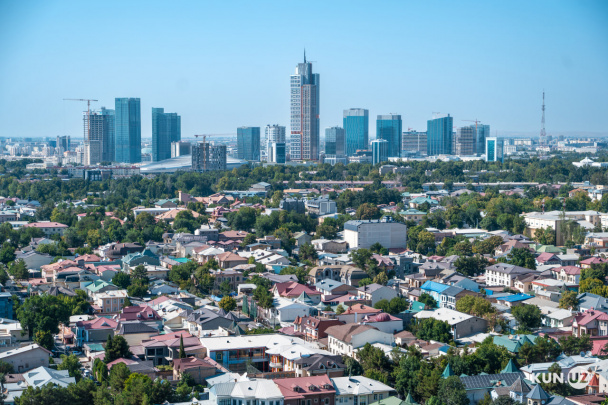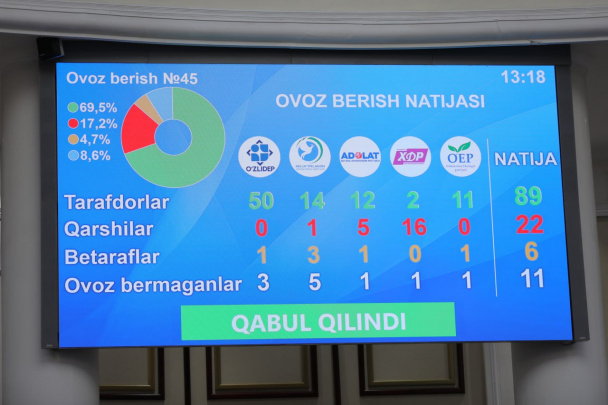Gov’t to allocate $294 million for adapting agriculture to climate change
Farmers will be covered up to 100% of fuel costs for each hectare leveled with a laser level.

Photo: Presidential press service
It is planned to allocate $294 million in grant funds to implement the national program for adapting agriculture to climate change and mitigating its impact, the presidential press service reports.
In Uzbekistan, 3 million hectares of pastures and agricultural land have been degraded, of which approximately 2 million hectares are salinized to varying degrees. According to foreign experts, by 2030, water resources in the region may decrease by 6% due to climate change.
In the Aral Sea region, the condition of 1 million hectares of agro-ecological landscapes and degraded pastures will be improved.
Protective forest belts will be created in Karakalpakstan, Khorezm, Bukhara and Kashkadarya regions. In areas with poor water supply, the cultivation of plants such as licorice, rose hips, sesame and brine shrimp will be established.
A center will be created to analyze and forecast climate change, and agrometeorological stations will be installed in five regions. Together with Italy, the International Center for Intensive Seed Growing and Nursery Growing, a farm for growing seedlings of plants resistant to drought and salinity, will be organized.
Grain and rice producers are compensated from the state budget for up to 100% of the costs of fuel and lubricants for each hectare leveled using a laser level.
At the first stage, this order will cover the Turtkul, Beruniy and Amudarya districts of Karakalpakstan. As a result, an increase in yield is expected by 5-7% and a reduction in water consumption by 15-20%.
At the Bandikhan Research and Experimental Station, 142 hectares will be re-introduced into circulation. Modern water-saving technologies will be installed on an area of 300 hectares and the cultivation of export-oriented fruits and grapes will be established.
At the Navoi Scientific Experimental Station in the Kyzyltepa district, a farm for growing grape seedlings will be organized with the import of varieties from France and other countries, and energy-saving pumping units and transformers will be installed.
Recommended
List of streets and intersections being repaired in Tashkent published
SOCIETY | 19:12 / 16.05.2024
Uzbekistan's flag flies high on Oceania's tallest volcano
SOCIETY | 17:54 / 15.05.2024
New tariffs to be introduced in Tashkent public transport
SOCIETY | 14:55 / 05.05.2023
Onix and Tracker cars withdrawn from sale
BUSINESS | 10:20 / 05.05.2023
Latest news
-
Andijan region launches $140M waste-to-energy facility construction
SOCIETY | 15:26
-
Cybercrime rate rising in Uzbekistan
POLITICS | 15:15
-
Billions lost and equipment stolen at UzTest: Testing lab faces major accountability crisis
SOCIETY | 15:08
-
Uzbekistan to scale up water-saving rice farming with drip irrigation
SOCIETY | 13:43
Related News

20:05 / 08.07.2025
Mirziyoyev and Putin discuss further strengthening trade and economic ties

20:34 / 07.07.2025
Uzbekistan's economy expands 6.8% in first half of 2025

12:46 / 07.07.2025
New penalties and obligations await farmers: Draft law sparks controversy among deputies

20:01 / 03.07.2025



